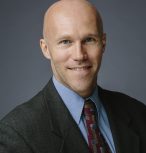DNA reveals the past and future of coral reefs
New DNA techniques are being used to understand how coral reacted to the end of the last ice age in order to better predict how they will cope with current changes to the climate. James Cook Univer

From 2005 to 2022, the main node of the ARC Centre of Excellence for Coral Reef Studies was headquartered at James Cook University in Townsville, Queensland (Australia)








Abstract. Abundance patterns in ecological communities have important implications for biodiversity maintenance and ecosystem functioning. However, ecological theory has been largely unsuccessful at capturing multiple macroecological abundance patterns simultaneously. I will propose a parsimonious model that unifies widespread ecological relationships involving local aggregation, species-abundance distributions, and species associations, and I will test this model against the metacommunity structure of reef-building corals and coral reef fishes across the western and central Pacific. For both corals and fishes, the unified model simultaneously captures extremely well local species abundance distributions, inter-specific variation in the strength of spatial aggregation, patterns of community similarity, species accumulation, and regional species richness, performing far better than alternative models that I also examined, and those analysed in previous work on coral reefs. This approach contributes to the development of synthetic theory for large-scale patterns of community structure in nature, and to addressing ongoing challenges in biodiversity conservation at macroecological scales.
Biography. Sean Connolly is a Professor of Marine Biology at JCU, and a Leader of the ARC Centre’s Program 2: Ecosystem dynamics: Past, Present and Future. Sean combines mathematical and statistical modelling with fieldwork and laboratory experiments to study the dynamics of biological turnover at all scales, including ecophysiology, population dynamics, species interactions and biodiversity, and macroevolution. He received his doctorate in 1999 from Stanford University in California, USA, for research on the ecology of rocky shores. In 1999-2000, he was a postdoctoral research fellow at the University of Arizona, USA, where he examined global dynamics of marine biodiversity in the fossil record. In 2000, he was recruited to JCU to develop and lead a research program in ecological modelling applied to coral reefs. Sean has >100 publications in leading international journals, including 6 papers in Science or Nature, and he has supervised 40 postgraduate and Honours students. In 2008 he was awarded an ARC Australian Professorial Fellowship (2008-2012), and in 2009, the Fenner Medal of the Australian Academy of Science, which honours outstanding research in the biological sciences by a scientist under 40. Sean has also twice received a national Citation for Outstanding Contributions to Student Learning, in 2006 and 2014, for his innovative approaches to teaching ecological modelling to undergraduate students.
New DNA techniques are being used to understand how coral reacted to the end of the last ice age in order to better predict how they will cope with current changes to the climate. James Cook Univer
A new study on the effects of climate change in five tropical countries has found fisheries are in more trouble than agriculture, and poor people are in the most danger. Distinguished Profess
James Cook University researchers have found brightly coloured fish are becoming increasingly rare as coral declines, with the phenomenon likely to get worse in the future. Christopher Hemingson, a
Researchers working with stakeholders in the Great Barrier Reef region have come up with ideas on how groups responsible for looking after the reef can operate more effectively when the next bleaching
Abstract: As marine species adapt to climate change, their heat tolerance will likely be under strong selection. Individual variation in heat tolerance and its heritability underpin the potential fo
Abstract: The Reef Ecology Lab in KAUST’s Red Sea Research Center explores many aspects of movement ecology of marine organisms, ranging from adult migrations to intergenerational larval dispersal
Abstract: Macroalgal meadows are a prominent, yet often maligned component of the tropical seascape. Our work at Ningaloo reef in WA demonstrate that canopy forming macroalgae provide habitat for ad
Abstract: Sharks are generally perceived as strong and fearsome animals. With fossils dating back at least 420 million years, sharks are not only majestic top predators but they also outlived dinosa
Abstract: Connectivity plays a vital role in many ecosystems through its effects on fundamental ecological and evolutionary processes. Its consequences for populations and metapopulations have been
Abstract: Evolution of many eukaryotic organisms is affected by interactions with microbes. Microbial symbioses can ultimately reflect host’s diet, habitat range, and even body shape. However, how
Abstract: The past few years have seen unprecedented coral bleaching and mortality on the Great Barrier Reef (GBR) but the consequences of this on biodiversity are not yet known. This talk will expl